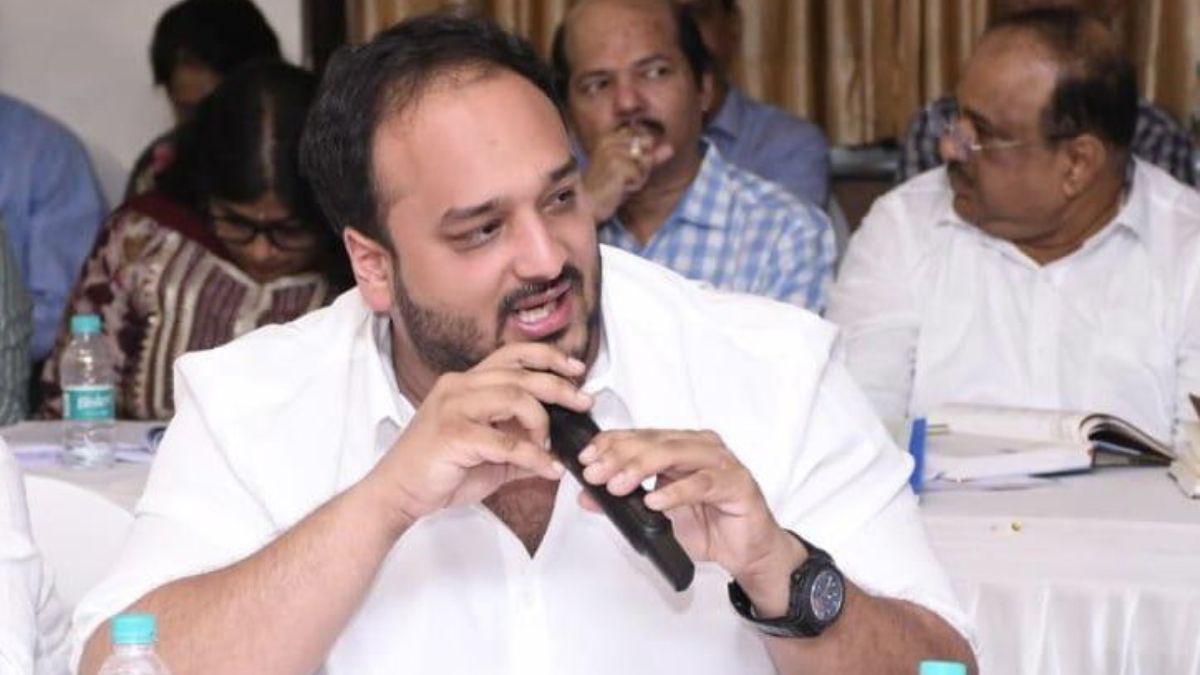The tragic death of Baba Siddique, a prominent NCP leader, has sent shockwaves through Mumbai and the nation. His son, Zeeshan Siddique, has publicly appealed for justice, emphasizing the need to keep the investigation focused on the facts and not allow the incident to become entangled in political maneuvering. This event underscores the importance of a thorough investigation, the need for swift justice for the victim’s family, and the broader concerns about political violence and its implications for society. The circumstances surrounding his death – a targeted shooting outside his office – highlight a disturbing trend of violence against public figures, necessitating a deeper examination of the security protocols surrounding such individuals and the overall climate of political discourse. Zeeshan Siddique’s plea serves as a poignant reminder of the human cost of such violence and the urgent need for law enforcement to bring all those responsible to justice, irrespective of their background or affiliations. The details emerging from the ongoing investigation will further clarify the context and provide clues toward uncovering the larger picture surrounding this crime.
The Murder of Baba Siddique and the Call for Justice
The Incident and Immediate Aftermath
On October 12th, Baba Siddique was tragically shot and killed outside his Mumbai office. Three attackers were involved, with two swiftly apprehended. However, the third attacker, Shiv Kumar Gautam, remains at large. The speed of the apprehension of two suspects, combined with the ongoing manhunt for a third, indicates the urgency and the intensity of the police investigation. The incident immediately sparked public outcry and a demand for accountability from authorities, underscoring the gravity of the situation and its widespread impact on the city’s public. The killing shocked the city, revealing a brazen disregard for the rule of law and heightened concerns about the safety of political leaders.
Zeeshan Siddique’s Plea for Justice
Zeeshan Siddique’s emotional plea on social media for justice, made on the platform X (formerly Twitter), powerfully encapsulates the family’s grief and demand for justice. His statement emphasized his father’s dedication to helping the poor and saving lives, emphasizing the personal toll taken by his assassination. The deliberate emphasis on the humanitarian aspect of his father’s actions aims to distance the murder from any possible political misinterpretations and highlight the inhumanity of the attack. His repeated call for justice underscores the desperation felt by the bereaved family and their determination to see this case pursued to the very end.
The Investigation and its Implications
Progress in the Case and Arrested Suspects
While two of the shooters have been apprehended, their motives remain unclear. It is vital to establish their exact roles, the existence of accomplices, and their possible connections to larger criminal networks. Authorities have stated the arrested individuals learned their shooting skills from online videos, raising questions about the ease of access to information which can facilitate violence. The continued investigation could unveil potential links to organized crime or other groups with malicious agendas. The search for Shubham Lonkar highlights how far the tentacles of this case spread beyond the immediate actions of the accused individuals.
The Role of Social Media and Potential Conspiracy
The investigation has expanded beyond the immediate perpetrators, leading to a broader search for accomplices. The police have issued a lookout circular for Shubham Lonkar, following a social media post allegedly implicating Lawrence Bishnoi’s gang. The potential link to Lawrence Bishnoi, a notorious gangster known for involvement in various high-profile cases, has introduced another critical dimension to this investigation. It highlights that crimes involving such individuals are complex affairs often involving significant conspiracies which go beyond single actors. This indicates the intricate nature of potential conspiracy theories, and the complexities in ensuring accountability across several actors, possibly in other parts of the country.
Broader Implications and Security Concerns
The Need for Enhanced Security Measures
Baba Siddique’s murder highlights vulnerabilities in security protocols surrounding prominent political figures in India. This emphasizes the need for enhanced safety measures. Increased scrutiny and a better understanding of potential threats are crucial for both politicians and other public figures who face similar risks. It is necessary for the authorities to consider how to prevent future violence by better protecting political leaders and providing necessary resources. This involves investigating how attacks such as this can be better avoided with security enhancement.
The Context of Political Violence in India
While not explicitly proven yet, the assassination may raise concerns about broader patterns of political violence within the country. This underscores the vital role of objective investigations in identifying potential patterns and links in politically-motivated violence. It is pivotal for law enforcement to impartially pursue those involved, no matter their background. The emphasis here is to maintain unbiased investigative procedures without being hindered by external political pressure.
Takeaway Points
- The murder of Baba Siddique is a tragedy demanding justice for his family and accountability for the perpetrators.
- The investigation is ongoing, with a focus on apprehending the remaining suspects and unraveling any wider conspiracies.
- The case highlights the need for enhanced security measures for political figures and a more thorough investigation into the broader issues of political violence.
- Zeeshan Siddique’s plea for justice underscores the profound impact of this event and the urgent need for the rule of law to prevail.
- The case calls for attention towards measures to improve public safety, by controlling the spread of information which promotes or glorifies violence, and enhance protective measures for vulnerable members of society.









